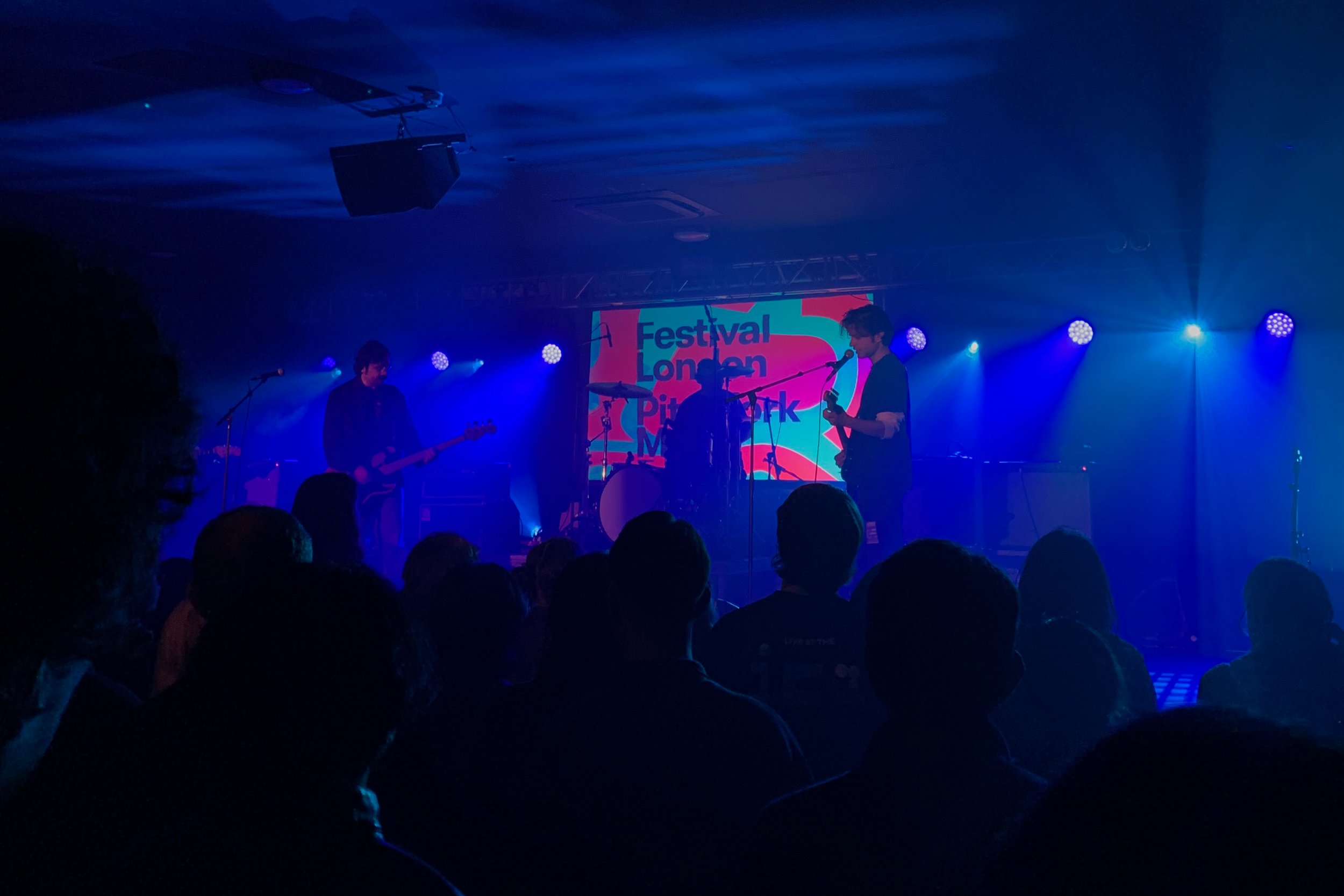Pitchfork’s Dalston Takeover: “A front-runner for the best metropolitan festival in London”
With fans increasingly finding themselves offered up stale festival lineups, one artist headlining every mid-level festival throughout the country, I have found myself veering away from your traditional festival settings and lured into the corners of some of my favourite venues yet again chasing lineups that actually get me excited.
With the rise of the metropolitan festival, this year, Londoners were spoiled with what I would argue was the most diverse lineup I have seen yet, the perfect blend of local legends and obscure sounds from all over. Whilst the full festival stretched over two weeks, I headed straight for their Dalston takeover, combining some of my favourite venues in East London and several contenders for my album of the year, I just couldn’t resist.
Whilst I would have preferred the sets to be spaced out a little more, possibly being stretched a little more into the afternoon to allow for venue changes, I did my best to catch as much of the action as possible.
The night began with Font from Houston, Texas, bringing chaotic energy with two drummers and a wildly animated frontman. Their set, drawn mostly from their recent release Strange Burden, shifted seamlessly between sharp post-punk and heavy, lurching noise rock. An evening that started with a jolt.
Next up was Boston-based Horse Jumper of Love, who transformed the EarTH Hall into a sonic force field. Their sound was relentless and immersive, stretching to every corner of the venue with a wall of almost tangible sound. The four-piece delivered a set of dreamlike sequences, each track melting seamlessly into the next, creating a hypnotic and heavy atmosphere. Rolling guitar melodies, paired with a punchy rhythm section, crafted a new kind of intensity that lingered long after their final note.
Upstairs into the gorgeous EarTH Theatre saw a drastic shift to the enchanting notes of New York duo Chanel Beads, immersed in a cloud of smoke, the amphitheatre was filling up the more songs the duo were playing. Discordant and ethereal they offered a forty-minute set doused in melancholy, I am not quite sure how to describe an artist like this, with influence from early trip-hop and a sprinkling of jazz percussion undercut by almost droning synthesisers the band resists genre and transcends the notion of being boxed into a category. The highlight of this performance was Unifying Thought from their album released earlier this year Your Day Will Come, I would recommend having a listen if you enjoy anything transportive.
From here, I found myself torn. Geordie Greep was the obvious choice, but having witnessed him create his chaos just a few weeks earlier at the ICA. I headed to The Shacklewell Arms, a London institution, for something new: Chicago-based Friko. After hearing their debut album, Where We’ve Been, Where We Go From Here, earlier this year on a friend’s recommendation, I had high hopes and they didn’t disappoint.
I could just about squeeze myself into the room, the band were playing as part of their UK/EU tour and managed to live up to the nostalgia and drive of their album despite only having three instruments present. Far from the derivative patterns we are seeing emerge from mainstream indie rock this set was full of feeling and saw both frontman Niko and the crowd leaning into the performance. The anthemic “Get numb to it!’ And ‘Crashing through’ saw the whole room moving, crunchy guitars and a real sense of vocal clarity set Friko apart from the crowd. Anyone convinced that good rock bands are a thing of the past clearly hasn’t found themselves crammed into The Shacklewell Arms on a Saturday night.
Rounding up the evening with a set from Marika Hackman, taking the stage with an understated confidence, each song carried a sense of intimacy. One that carried well through the theatre, Marika’s voice, equal parts haunting and hypnotic, filled the venue as she wove through a setlist that showcased her newest release Big Sigh. Differing from her previous offerings, this seemed to relish in its inconsistencies, an entirely new soundscape for Hackman, her most intimate yet multi-instrumental and deeply personal. Lead track No Caffeine provided a gentle chaos that amongst its anxious energy stumbled its way up the stairs of the amphitheatre.
It was unfortunate that there was so much movement in the audience during the set, as a sense of stillness would have elevated the performance. However, the mid-set clash with Shame, the festival headliners, made it almost unavoidable.
Despite the challenges, the night was a powerful reminder of why smaller, more intimate festivals still hold so much appeal. I’d argue that Pitchfork’s offering this year was easily the front-runner for the best metropolitan festival in London. The lineup was expertly curated, bringing together a mix of international talent, local legends, and emerging artists. It gave these acts the perfect platform, creating an experience that felt both fresh and deeply connected to the city's music scene.
Written by Olivia Hannant
